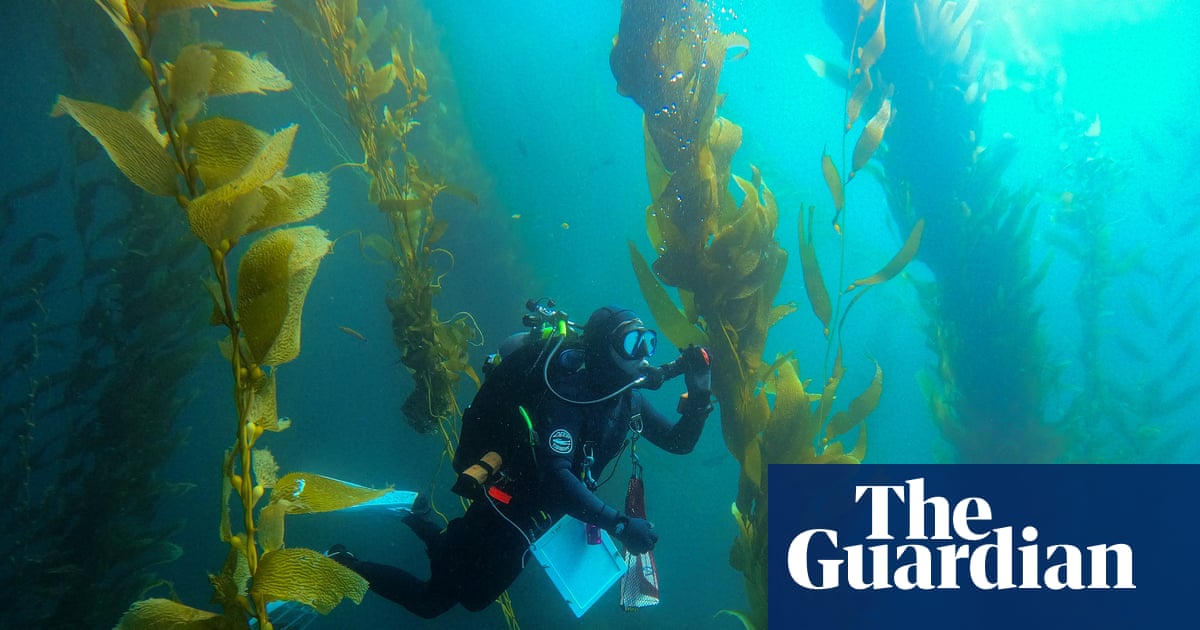
"On an overcast Tuesday in July, divers Mitch Johnson and Sean Taylor shimmy into their wetsuits on the back of the R/V Xenarcha, a 28ft boat floating off the coast of Rancho Palos Verdes, south of Los Angeles. Behind them, the clear waters of the Pacific are dotted with a forest of army-green strands, waving like mermaid hair underwater. We are here to survey the giant Pacific kelp, a species that once thrived in these ice cold waters."
"But over the past two decades, a combination of warm ocean temperatures, pollution, overfishing and the proliferation of hungry sea urchins that devour the kelp has led to a 80% decline in the forest along the southern California coast. In recent years, scientists have staged a comeback mounting one of the largest and most successful kelp restoration projects in the world. To do so, they've recruited an army of hammer-wielding divers to smash and clean up the voracious urchins."
"Seen from the boat's edge, the kelp fronds are so thick and sturdy at places that they form mats at the ocean's surface, sturdy enough for egrets and herons to perch on while they poked at the fish beneath. These waters host a multitude of species, from bright orange garibaldi fish and white sharks that silently cruise the coastline to blue whales which sail through the deep channel a few miles to our east."
Giant Pacific kelp forests off southern California have declined about 80% over two decades because of warm ocean temperatures, pollution, overfishing and a proliferation of sea urchins that devour kelp. Recent restoration efforts have mounted one of the largest kelp recovery projects, recruiting divers to remove purple urchins and reestablish kelp. Divers conduct underwater surveys using tape and cameras and sometimes use hammers to crack urchin shells. Kelp mats at the surface support birds and sustain many marine species, including garibaldi fish, white sharks and migrating blue whales. The Bay Foundation leads restoration and monitoring from vessels such as the R/V Xenarcha.
Read at www.theguardian.com
Unable to calculate read time
Collection
[
|
...
]